Πριν φύγεις...
Επωφεληθείτε από έκπτωση 10% στην πρώτη σας παραγγελία
10% έκπτωση
Εισαγάγετε τον παρακάτω κωδικό στο ταμείο για να λάβετε έκπτωση 10% στην πρώτη σας παραγγελία
Καλέστε μας στο 77778586 ή μέσω ζωντανής συνομιλίας 👇
Currency
Δωρεάν αποστολή για αγορές άνω των 20€
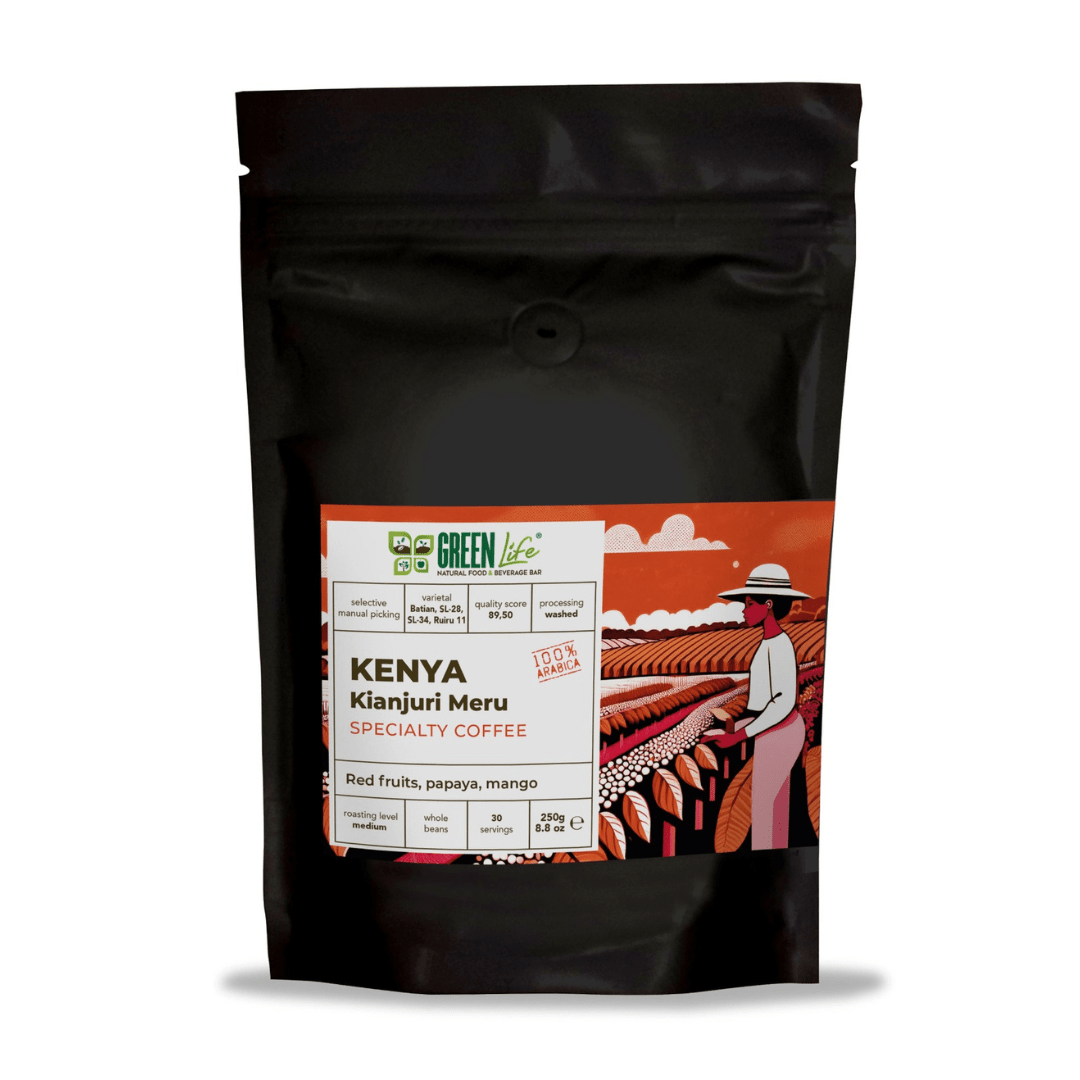
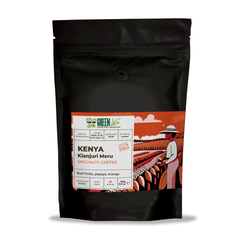
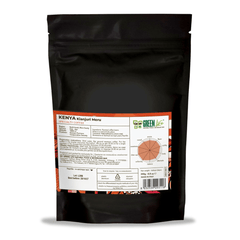
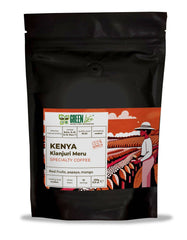
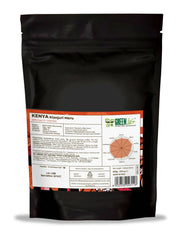
Couldn't load pickup availability
Δωρεάν απλή αποστολή για παραγγελίες άνω των €70 στην Κύπρο
Εκτιμώμενη παράδοση εντός 1 έως 4 εργάσιμων ημερών.
Μπορείτε να επιστρέψετε τα περισσότερα καινούργια, κλειστά προϊόντα εντός 30 ημερών από την παράδοση για πλήρη επιστροφή χρημάτων. Θα καλύψουμε επίσης τα έξοδα επιστροφής εάν η επιστροφή οφείλεται σε δικό μας λάθος (λάβατε ένα λανθασμένο ή ελαττωματικό προϊόν κ.λπ.).
Θα πρέπει να περιμένετε να λάβετε την επιστροφή χρημάτων σας εντός τεσσάρων εβδομάδων από την παράδοση του δέματός σας στον αποστολέα επιστροφής, ωστόσο, σε πολλές περιπτώσεις θα λάβετε επιστροφή χρημάτων πιο γρήγορα. Αυτή η χρονική περίοδος περιλαμβάνει τον χρόνο αποστολής για να παραλάβουμε την επιστροφή σας από τον αποστολέα (5 έως 10 εργάσιμες ημέρες), τον χρόνο που μας χρειάζεται για να επεξεργαστούμε την επιστροφή σας μόλις την παραλάβουμε (3 έως 5 εργάσιμες ημέρες) και τον χρόνο που χρειάζεται η τράπεζά σας για να επεξεργαστεί το αίτημά μας για επιστροφή χρημάτων (5 έως 10 εργάσιμες ημέρες).
Εάν χρειάζεται να επιστρέψετε ένα προϊόν, απλώς συνδεθείτε στον λογαριασμό σας, δείτε την παραγγελία χρησιμοποιώντας τον σύνδεσμο "Ολοκλήρωση Παραγγελιών" στο μενού "Ο Λογαριασμός μου" και κάντε κλικ στο κουμπί "Επιστροφή Προϊόντος/ων". Θα σας ειδοποιήσουμε μέσω email για την επιστροφή χρημάτων σας μόλις λάβουμε και επεξεργαστούμε το επιστρεφόμενο προϊόν.
Κόκκινα φρούτα, παπάγια και μάνγκο
Η ιδιαίτερη μέθοδος ζύμωσης που χρησιμοποιείται δίνει στον καφέ αρωματικές νότες ώριμων τροπικών φρούτων, ενώ στο φλιτζάνι είναι ισορροπημένος, γλυκός και πλούσιος σε αρώματα με επίγευση ώριμων κόκκινων φρούτων.
ΔΕΔΟΜΕΝΑ ΚΑΦΕ
Βαθμολογία ποιότητας : 89,50
Ποικιλία : Batian, SL-28, SL-34, Ruiru 11
Επεξεργασία : Πλύσιμο
Περιοχή : North Imenti, Meru County
Συγκομιδή : Φεβρουάριος – Απρίλιος
Υψόμετρο : 1800 μ.
Αγρόκτημα : Μικροκαλλιεργητές της κομητείας Meru
Παραγωγός : Αγροτικός Συνεταιρισμός Kianjuri

ΠΡΟΤΕΙΝΟΜΕΝΗ ΣΥΝΤΑΓΗ
Με βάση το στυλ καβουρδίσματος των καβουρδιστών μας, Andrea και Fabrizio, προτείνουμε δύο συνταγές, για εσπρέσο και για φίλτρο (V60), τις οποίες μπορείτε να χρησιμοποιήσετε ως σημείο εκκίνησης για να τονίσετε τις γεύσεις αυτής της συγκεκριμένης παρτίδας. Μπορείτε επίσης να απολαύσετε αυτόν τον καφέ με άλλες μεθόδους εκχύλισης, χρησιμοποιώντας τις προτάσεις μας ως σημείο εκκίνησης για να αποκτήσετε τις αισθητηριακές αποχρώσεις που προτιμάτε, οι οποίες θα προσαρμοστούν ανάλογα με τον βαθμό άλεσης, τα χαρακτηριστικά του νερού και τον εξοπλισμό που χρησιμοποιείτε.


Ο ΠΑΡΑΓΩΓΟΣ
Μικροί παραγωγοί στην κομητεία Μέρου
Η κομητεία Μέρου φιλοξενεί τη φυλή Αμέρου, η οποία έχει πλούσια ιστορία και παράδοση στην καλλιέργεια καφέ, η οποία γίνεται σε μικρές φυτείες, συχνά μικρότερες από ένα ή δύο εκτάρια η καθεμία. Μόλις συλλεχθεί ο καφές, οι αγρότες τον μεταφέρουν αμέσως στο σταθμό πλύσης για επεξεργασία, έτσι ώστε η ημερήσια παρτίδα να μπορεί να προέρχεται από αρκετές δεκάδες αγρότες.
Αγροτικός Συνεταιρισμός Κιαντζούρι
Η Kianjuri Cooperative Coffee Farmers Ltd, η οποία ιδρύθηκε τη δεκαετία του 1970, αποτελείται από περίπου 900 μικροκαλλιεργητές και διοικείται από ένα εκλεγμένο διοικητικό συμβούλιο που επιβλέπει τις καθημερινές λειτουργίες μέσω ενός διευθυντή εργοστασίου, ο οποίος είναι υπεύθυνος για την εγγραφή των μελών, τη διατήρηση αρχείων και την επεξεργασία του καφέ μετά την παράδοση στο εργοστάσιο. Οι φάρμες βρίσκονται στην κομητεία Meru της Κένυας, γύρω από το Kianjuri, στη βορειοανατολική πλαγιά του όρους Κένυα, σε υψόμετρο περίπου 1.800 μέτρων πάνω από την επιφάνεια της θάλασσας.
ΤΟ ΕΘΝΟΣ
Κενύα
Η Κένυα είναι ο μεγαλύτερος παραγωγός καφέ στην Αφρική, με τη βιομηχανία να αντιπροσωπεύει περίπου το 20% των εξαγωγών της χώρας. Ο καφές, που εισήχθη στη χώρα το 1893, καλλιεργείται στα κεντρικά και δυτικά τμήματα της χώρας σε υψόμετρα μεταξύ 1.200 και 2.100 μέτρων πάνω από την επιφάνεια της θάλασσας, σε εύφορα, αργιλώδη και καλά στραγγιζόμενα εδάφη. Η συνολική έκταση που χρησιμοποιείται για την καλλιέργεια καφέ εκτιμάται σε 160.000 εκτάρια. Στις περιοχές παραγωγής, το καλοκαιρινό και εαρινό κλίμα είναι πολύ παρόμοιο με αυτό της Ευρώπης, με εύρος θερμοκρασίας που δεν υπερβαίνει τους 19°C και βροχοπτώσεις καλά κατανεμημένες καθ' όλη τη διάρκεια του έτους. Αυτές οι συνθήκες καθιστούν τις περισσότερες περιοχές της Κένυας μοναδικές στον κόσμο για την καλλιέργεια καφέ. Η χώρα απολαμβάνει δύο ανθοφορίες κάθε χρόνο, την πρώτη αμέσως μετά την έναρξη των βροχών τον Μάρτιο/Απρίλιο και τη δεύτερη τον Οκτώβριο, αλλά στις περισσότερες περιοχές η κύρια καλλιέργεια ωριμάζει από τον Οκτώβριο έως τον Δεκέμβριο. Η βιομηχανία καφέ της Κένυας ρυθμίζεται και εγγυάται από το Συμβούλιο Καφέ της Κένυας, τον φορέα που επιβάλλει και επαληθεύει την εφαρμογή αυστηρών προτύπων ποιότητας. Ο καφές από την Κένυα είναι γνωστός για το μοναδικό αρωματικό του προφίλ, που χαρακτηρίζεται από φρουτώδη αρώματα και απαλή οξύτητα, που καθιστούν κάθε γευσιγνωσία μια αξέχαστη εμπειρία.
Η ΠΕΡΙΟΧΗ
Κομητεία Μέρου
Η κομητεία, η οποία καλύπτει μια έκταση περίπου 7.000 τετραγωνικών χιλιομέτρων κατά μήκος της ανατολικής πλευράς του όρους Κένυα, απολαμβάνει ένα μικροκλίμα που ευνοεί τη γεωργία, την κύρια δραστηριότητα στην περιοχή, επιτρέποντας την παραγωγή ποιοτικού τσαγιού και καπνού. Αλλά πάνω απ' όλα ο καφές, που καλλιεργείται σε υψόμετρο μεταξύ 1.350 και 1.950 μέτρων πάνω από την επιφάνεια της θάλασσας, καταφέρνει να φτάσει σε πολύ υψηλά επίπεδα ποιότητας χάρη στα εύφορα ηφαιστειακά εδάφη και τις άφθονες βροχοπτώσεις που, σε συνδυασμό με την εμπειρία και το πάθος των αγροτών, συμβάλλουν στην εξαιρετική ποιότητα του παραγόμενου καφέ. Η καλλιέργεια στην κομητεία Μέρου χρονολογείται από τις αρχές του 20ού αιώνα, όταν η βρετανική αποικιακή κυβέρνηση εισήγαγε την καλλιέργεια του φυτού καφέ. Αλλά μόνο από τη δεκαετία του 1950 οι Αμέρου υιοθέτησαν την καλλιέργεια καφέ ως κύρια οικονομική δραστηριότητα, με την πάροδο του χρόνου καθιερώνοντας την κομητεία ως περιοχή παραγωγής Ειδικών Καφέδων και κερδίζοντας πολλά βραβεία για τους μοναδικούς και υψηλής ποιότητας κόκκους της, που αναζητούνται από τους λάτρεις του καφέ σε όλο τον κόσμο.
ΠΟΙΚΙΛΙΑ
Μπατιάν
Η Batian είναι μια σύνθετη ποικιλία, αποτέλεσμα διασταύρωσης μεταξύ των ποικιλιών Typica και Bourbon. Ανθεκτική στη σκωρίαση των φύλλων και στις πιο κοινές ασθένειες, η ποικιλία εισήχθη στην Κένυα το 2010.
SL 28
Ανάμεσα στις πιο γνωστές και πιο εκτιμημένες αφρικανικές ποικιλίες, η SL 28, ευρέως διαδεδομένη στην Κένυα από τη δεκαετία του 1930, είναι κατάλληλη για μεσαία-μεγάλα υψόμετρα, παρουσιάζει αντοχή στην ξηρασία αλλά είναι ευαίσθητη στις κύριες ασθένειες του καφέ.
SL 34
Η ποικιλία, που επιλέχθηκε αρχικά στην Κένυα στα τέλη της δεκαετίας του 1930 στα Scott Agricultural Laboratories, είναι προσαρμοσμένη σε περιοχές μεγάλου υψομέτρου με καλές βροχοπτώσεις και διαθέτει φυτά με σκούρες χάλκινες άκρες βλαστών που εναλλάσσονται με πράσινες άκρες.
Ρουίρου 11
Η ποικιλία είναι μια ποικιλία υψηλής απόδοσης, που φυτεύεται στην Κένυα για να επιτρέψει την πιο εντατική παραγωγή καφέ, με λιγότερες απώλειες λόγω ασθενειών και παρασίτων, διατηρώντας παράλληλα υψηλά πρότυπα ποιότητας.
Η ΔΙΑΔΙΚΑΣΙΑ ΠΑΡΑΓΩΓΗΣ
Συγκομιδή των δρύπων
Οι κάψουλες καφέ συλλέγονται με το χέρι για να εξασφαλιστεί το τέλειο επίπεδο ωρίμανσης του καρπού και παραδίδονται την ίδια ημέρα στο σταθμό πλύσης για επεξεργασία.
Αφαίρεση φλούδας και πολτού
Η πρώτη φάση επεξεργασίας συνίσταται στη μηχανική αφαίρεση της φλούδας και του πολτού του καρπού, προκειμένου να διαχωριστούν οι πράσινοι κόκκοι καφέ που στη συνέχεια θα υποστούν ζύμωση σε νερό. Τα απόβλητα επεξεργασίας, οι φλούδες και ο πολτός, θα χρησιμοποιηθούν ως φυσικό κομπόστ για τη θρέψη των φυτών.
Ζύμωση σε νερό
Οι κόκκοι καφέ βυθίζονται σε νερό σε δεξαμενές ζύμωσης, όπου θα παραμείνουν για μια περίοδο που κυμαίνεται από 12 έως 24 ώρες ανάλογα με το εξωτερικό κλίμα. Μετά τη ζύμωση, οι κόκκοι καφέ περνούν από ειδικά κανάλια έκπλυσης όπου θα αφαιρεθεί το γλίσχρασμα που εξακολουθεί να υπάρχει.
Μούσκευμα
Οι κόκκοι στη συνέχεια αποστέλλονται σε δεξαμενές μούλιασμα όπου παραμένουν κάτω από το νερό για άλλες 48 ώρες. Αυτή η διαδικασία αυξάνει τις πρωτεΐνες και τα αμινοξέα, γεγονός που με τη σειρά του αυξάνει την πολυπλοκότητα της οξύτητας. Μετά το μούλιασμα, ο καφές αφήνεται να στραγγίξει για 1-2 ώρες.
Ξήρανση
Οι κόκκοι καφέ τοποθετούνται τώρα σε υπερυψωμένα παρτέρια (αφρικανικό παρτέρι) και αφήνονται να στεγνώσουν στον ήλιο για χρονικό διάστημα που κυμαίνεται από 3 έως 4 εβδομάδες. Αυτή η αργή διαδικασία θα επιτρέψει την απόκτηση ομοιογενών κόκκων με τελικό ποσοστό υγρασίας μεταξύ 10% και 12%.
Συσκευασία και μείωση υγρασίας
Μετά την ξήρανση, οι καφέδες θα συσκευάζονται σε σακούλες από γιούτα και θα αποθηκεύονται στην αποθήκη για περίπου 1 μήνα. Αυτή η διαδικασία βοηθά στην περαιτέρω τυποποίηση του ποσοστού υγρασίας, αποφεύγοντας έτσι τον κίνδυνο σχηματισμού μούχλας κατά τη θαλάσσια μεταφορά.
Αποφλοιώσεις
Μόλις επιτευχθεί το σωστό επίπεδο υγρασίας, το περγαμηνό χαρτί αφαιρείται από τον κόκκο καφέ μέσω μιας μηχανής με ρολό. Στη συνέχεια, ο καφές τοποθετείται μόνιμα σε σακούλες από γιούτα και είναι έτοιμος για αποστολή.
H Green Life καταβάλλει κάθε δυνατή προσπάθεια να διασφαλίσει την ακρίβεια των εικόνων και των πληροφοριών των προϊόντων της, ορισμένες αλλαγές στην κατασκευή της συσκευασίας ή/και των συστατικών ενδέχεται να εκκρεμούν ενημέρωσης στον ιστότοπό μας. Σας συνιστούμε να διαβάζετε τις ετικέτες, τις προειδοποιήσεις και τις οδηγίες όλων των προϊόντων πριν από τη χρήση και να μην βασίζεστε αποκλειστικά στις πληροφορίες που παρέχονται από την Green Life.
Σημαντική Σημείωση: Οι χρόνοι παράδοσης ενδέχεται να παραταθούν κατά τη διάρκεια εορτών.
Μπορείτε να επιστρέψετε τα περισσότερα καινούργια, αχρησιμοποίητα προϊόντα εντός 3–5 ημερών από την παράδοση για πλήρη επιστροφή χρημάτων. Θα καλύψουμε επίσης τα έξοδα επιστροφής εάν η επιστροφή οφείλεται σε δικό μας λάθος (παραλάβατε λανθασμένο ή ελαττωματικό προϊόν, κ.λπ.).
Θα πρέπει να περιμένετε να λάβετε την επιστροφή χρημάτων σας εντός τεσσάρων εβδομάδων από τη στιγμή που θα παραδώσετε το δέμα στον μεταφορέα. Σε πολλές περιπτώσεις θα λάβετε την επιστροφή πιο γρήγορα. Αυτή η περίοδος περιλαμβάνει:
Εάν χρειαστεί να επιστρέψετε ένα προϊόν, απλώς συνδεθείτε στον λογαριασμό σας, δείτε την παραγγελία στην ενότητα "Ολοκληρωμένες Παραγγελίες" και κάντε κλικ στο κουμπί "Επιστροφή Προϊόντος/ων". Θα σας ειδοποιήσουμε μέσω e-mail μόλις παραλάβουμε και επεξεργαστούμε το επιστρεφόμενο προϊόν.
Thanks for subscribing!
This email has been registered!
Πριν κάνετε κάποια αγορά, φροντίστε να ελέγξετε την Πολιτική Αποστολών και Παράδοσης .
Εάν έχετε οποιεσδήποτε ερωτήσεις σχετικά με αυτούς τους όρους, παρακαλούμε επικοινωνήστε μαζί μας εδώ .

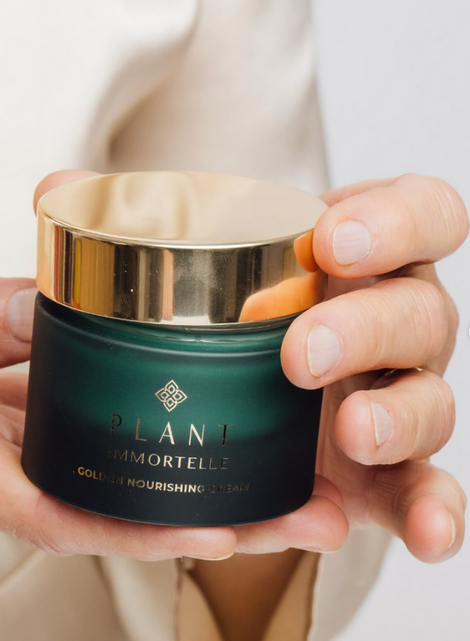
Επωφεληθείτε από έκπτωση 10% στην πρώτη σας παραγγελία
Εισαγάγετε τον παρακάτω κωδικό στο ταμείο για να λάβετε έκπτωση 10% στην πρώτη σας παραγγελία